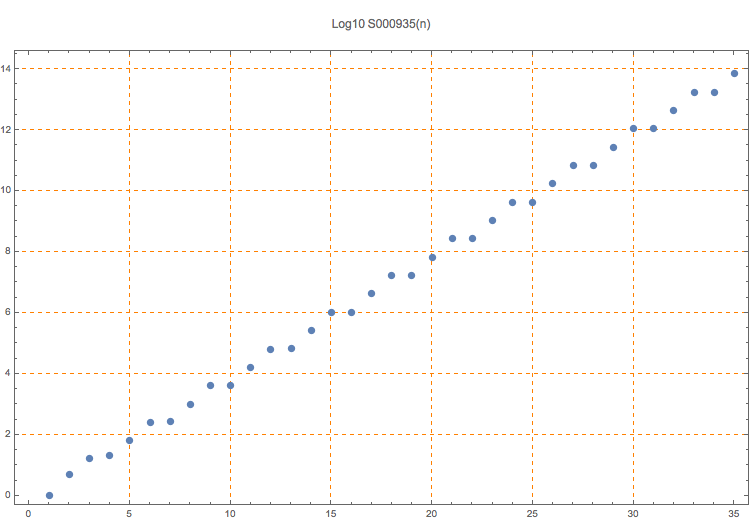In base 4, these positive numbers and their squares are palindromic.
1, 5, 17, 21, 65, 257, 273, 1025, 4097, 4161, 16385, 65537, 65793, 262145, 1048577, 1049601, 4194305, 16777217, 16781313, 67108865, 268435457, 268451841, 1073741825, 4294967297, 4295032833, 17179869185, 68719476737, 68719738881, 274877906945
1
The numbers appear to be 1 and then triples (4^(2k-1)+1, 4^(2k)+1, 4^(2k)+4^k+1) for k = 1, 2, 3,…. Written in base 4, the numbers are 1, 11, 101, 111, 1001, 10001, 10101, 100001, 1000001, 1001001, 10000001,… whose squares are 1, 121, 10201, 12321, 1002001, 100020001, 102030201, 10000200001, 1000002000001, 1002003002001, 100000020000001,….
T. D. Noe, Plot of 35 terms
T. D. Noe, Table of 35 terms
Eric W. Weisstein, MathWorld: Palindromic Number
(Mma) makePalindrome[n_Integer, b_Integer, del_] := Module[{c = IntegerDigits[n, b], d}, d = If[del, Join[c, Reverse[Most[c]]], Join[c, Reverse[c]]]; FromDigits[d]]; palindromeQ[n_, b_] := Module[{d = IntegerDigits[n, b]}, d == Reverse[d]]; b = 4; t = {}; Do[Do[Do[d = makePalindrome[i, b, j]; e = FromDigits[IntegerDigits[d], b]; If[palindromeQ[e^2, b], AppendTo[t, e]], {i, b^(n - 1), b^n - 1}], {j, {True, False}}], {n, Floor[0.5 + 10*Log[3]/Log[b]]}]
nonn,base
T. D. Noe, Aug 26 2016
